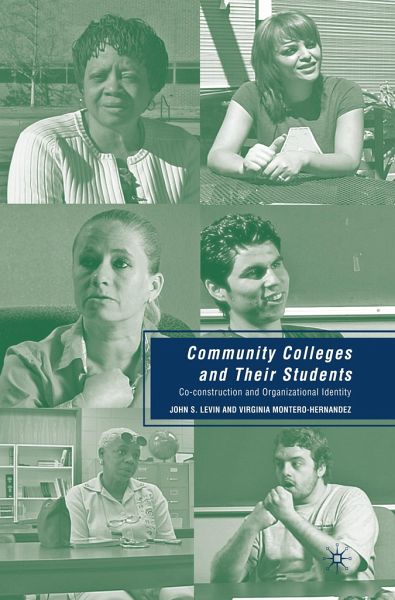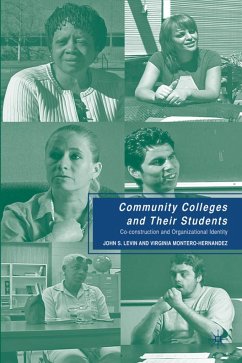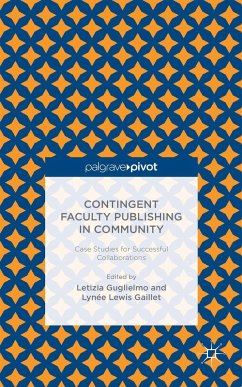
Community Colleges and Their Students
Co-construction and Organizational Identity
Versandkostenfrei!
Versandfertig in 6-10 Tagen
38,99 €
inkl. MwSt.
Weitere Ausgaben:

PAYBACK Punkte
19 °P sammeln!
This book employs a socio-cultural approach to study the organizational dynamics and experiences of self-formation that shape community college life. The authors use case studies to analyze both the symbolic dimension and practices that enable the production of educational experiences in seven community colleges across the U.S. Levin and Montero-Hernandez explain the construction of organizational identity and student development as a result of the connection between institutional forces and individual agency. This work emphasizes the forms and conditions of interaction among college personnel...
This book employs a socio-cultural approach to study the organizational dynamics and experiences of self-formation that shape community college life. The authors use case studies to analyze both the symbolic dimension and practices that enable the production of educational experiences in seven community colleges across the U.S. Levin and Montero-Hernandez explain the construction of organizational identity and student development as a result of the connection between institutional forces and individual agency. This work emphasizes the forms and conditions of interaction among college personnel, students, and external groups that were enacted to respond to the demands and opportunities in both participants local and larger contexts. The authors acknowledge both the collective and individual efforts of community college personnel to create caring community colleges that support nontraditional students.












